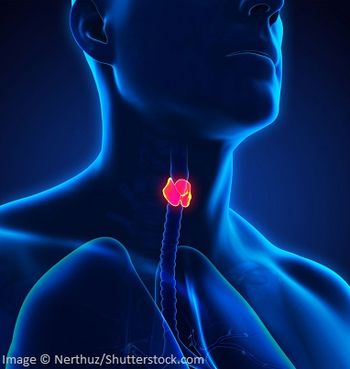
Expert Weighs In On Appropriate Evaluation After a Thyroid Cancer Diagnosis
While there have been increases in the amount of thyroid cancer cases detected, there is still work for oncologists to do – namely to ensure there is adequate evaluation of the disease at diagnosis.
While there have been increases in the amount of thyroid cancer cases detected, there is still work for oncologists to do – namely to ensure there is adequate evaluation of the disease at diagnosis, according to Catherine Sinclair, MD.
“The main thing is determining the full extent of the thyroid cancer at initial diagnosis because the best time to get rid of the disease is the first time. We want to be sure that the thyroid cancer is contained within the thyroid gland or not contained in the thyroid gland if it is on the side of the lymph nodes,” Sinclair, associate professor at the Icahn School of Medicine and director of the division of head and neck surgery at Mount Sinai, said in an interview with Targeted Oncology, Cancer Network's sister publication.
Surgery is the primary treatment for patients with thyroid cancer and is an important strategy in patients with more aggressive diseases. In particular, patients at higher risk for recurrence or for those with a more
Molecular testing can identify genetic markers in patients as well that may put them at higher risk for recurrence and at greater need for RAI. Therefore, Sinclair added that determining a full extent of the
“That is very important information to know before the surgery because it does alter the procedure that we would perform to get rid of that disease. It does potentially affect the outcome of the patient and whether they need RAI treatment or something else,” she said.
There are a number of factors, Sinclair explained, that can determine whether a patient needs post-operative RAI therapy, such as the size of the tumor, whether there were risk factors involved, the type of histology of the tumor, and whether it has very aggressive features.
Moreover, an adequate evaluation of the voice box, larynx and lymph nodes are needed before surgery, as this too can affect outcomes of surgery.
“We are doing that in patients with large or aggressive-appearing thyroid cancers, with a CT scan of the neck with contrast,” Sinclair explained. “The possibility of them needing RAI after surgery should not be a contraindication to them having a full evaluation with the CT scan prior to surgery. Make sure you have a very clear picture of what’s going on before you operate on that patient.”
The plus side to all of this? Thyroid cancer tends to have good survival rates in patients.
“Early detection is important in thyroid cancer because it has the ability to spread to lymph nodes and elsewhere throughout the body, but it is generally a disease that is very survivable, at least for the well-differentiated subtypes, and it’s a disease that may even be amenable to observation for very small cancers,” Sinclair said. “Knowing of this cancer early is important because it allows us to determine an appropriate observation or treatment strategy. People, if they get thyroid cancer in general, don’t need to panic because the overall survival rates are excellent for the well-differentiated subtype.”
This article was adapted from an article that originally appeared on
Newsletter
Stay up to date on recent advances in the multidisciplinary approach to cancer.



































